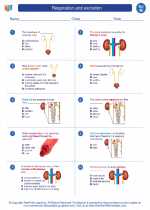Electromagnets
An electromagnet is a type of magnet in which the magnetic field is produced by an electric current. When the current stops, the magnetic field also ceases to exist. This property makes electromagnets very useful in a wide range of applications, including electric motors, generators, transformers, and magnetic resonance imaging (MRI) machines.
How do Electromagnets Work?
Electromagnets work on the principle of electromagnetic induction. When an electric current flows through a wire, it creates a magnetic field around the wire. By coiling the wire into a helix or wrapping it around a core material, such as iron, the magnetic field becomes concentrated, resulting in a stronger magnet.
Factors Affecting the Strength of an Electromagnet
- Number of Turns: Increasing the number of turns of wire in the coil increases the strength of the magnetic field.
- Current: The strength of the magnetic field is directly proportional to the current flowing through the wire. Increasing the current increases the strength of the electromagnet.
- Core Material: Using a core material with high magnetic permeability, such as iron, further enhances the strength of the magnetic field.
Applications of Electromagnets
Electromagnets have numerous practical applications, including:
- Electric motors and generators
- Transformers for power distribution
- Magnetic lifting and separating devices
- Magnetic resonance imaging (MRI) machines in medical diagnostics
- Speakers and headphones in audio equipment
Electricity and Magnetism
It is important to note that electromagnets demonstrate the fundamental relationship between electricity and magnetism, as discovered by physicist Hans Christian Ørsted in 1820. This relationship forms the basis of electromagnetism, a key concept in physics and engineering.
[Electromagnets] Related Worksheets and Study Guides:
.◂Science Worksheets and Study Guides Eighth Grade. Respiration and excretion

 Worksheet/Answer key
Worksheet/Answer key
 Worksheet/Answer key
Worksheet/Answer key
 Worksheet/Answer key
Worksheet/Answer key
 Vocabulary/Answer key
Vocabulary/Answer key
 Vocabulary/Answer key
Vocabulary/Answer key
 Vocabulary/Answer key
Vocabulary/Answer key
 Vocabulary/Answer key
Vocabulary/Answer key
